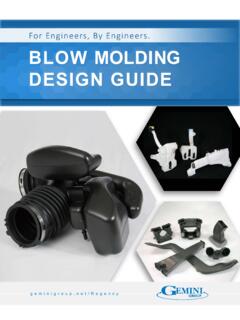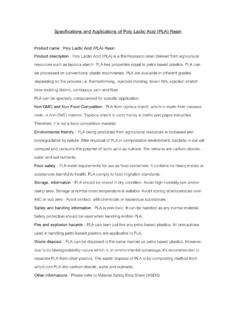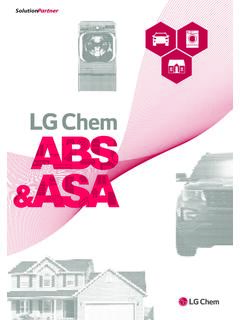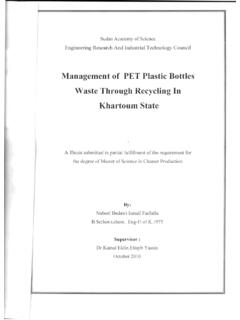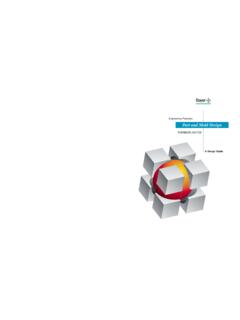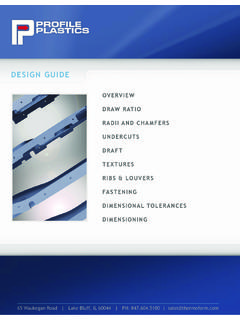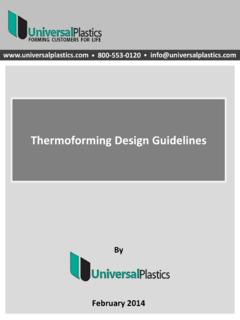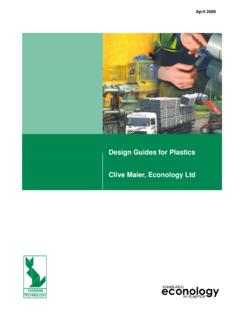Transcription of Syllabus - Savitribai Phule Pune University
1 Faculty of Engineering Savitribai Phule Pune University Savitribai Phule Pune University Syllabus FOR. Mechanical and Automobile Engineering 2015 Course UNDER FACULTY OF ENGINEERING. EFFECTIVE FROM June 2016. SE(Mechanical and Automobile Engineering) 2015 Course 1. Faculty of Engineering Savitribai Phule Pune University Structure of (Mechanical Engineering/ Automobile Engineering). 2015 Course Semester-I. Subject Subject Teaching Examination Scheme Total Credits Code Scheme Marks Hours/Week L Tut. PR In-Sem End- TW PR. Oral Lect/Tut PR/OR. (online) Sem 207002 Engineering 04 01 - 50 50 25 - - 125 05 - Mathematics III. 202041 Manufacturing 03 - 02 50 50 50 - - 150 03 01. Process-I. 202042 Computer Aided 01 - 02 -- -- 50 - 50 01 01. Machine Drawing 202043 Thermodynamics 04 - 02 50 50 - - 50 150 04 01. 202044 Material Science 03 01 - 50 50 25 - - 125 03 01. 202051 Strength of 04 - 02 50 50 - - 50 150 04 01. Materials 202055 Audit course -- -- Total 19 02 08 250 250 100 50 100 750 20 05.
2 Total of Part-I 29 Hrs 750 25. Note: Material Science and Engineering Mathematics-III practical may be carried out fortnightly for two hours, so that the tutorial hours may be used as practical. Semester-II. Subject Subject Teaching Examination Scheme Total Credits Code Scheme Marks Hours/Week L Tut. PR In-Sem End- TW PR. Oral Lect/Tut PR/OR. (online) Sem 202045 Fluid Mechanics 04 - 02 50 50 - 50 - 150 04 01. 202047 Soft Skills - - 02 -- -- 25 - - 25 - 01. 202048 Theory of 04 01 - 50 50 25 - 25 150 04 01. Machines I. 202049 Engineering 03 01 - 50 50 - - 25 125 03 01. Metallurgy 202050 Applied 04 - 02 50 50 - 50 - 150 04 01. Thermodynamics 203152 Electrical and 03 - 02 50 50 25 - - 125 03 01. Electronics Engineering 202053 Machine Shop I - - 02 -- -- 25 - - 25 - 01. Total 18 02 10 250 250 100 100 50 750 18 07. Total of Part-II 30 Hrs 750 25. Note: Theory of Machine-I and Engineering Metallurgy practical may be carried out fortnightly for two hours, so that the tutorial hours may be used as practical.
3 SE(Mechanical and Automobile Engineering) 2015 Course 2. Faculty of Engineering Savitribai Phule Pune University Audit Course1. In addition to credits courses, it is recommended that there should be audit course (non-credit course). from second year of Engineering. The student will be awarded grade as AP on successful completion of audit course. The student may opt for one of the audit courses, starting in second year first semester. Though not mandatory, such audit courses can help the student to get awareness of different issues which make impact on human lives and enhance their skill sets to improve their employability. List of audit courses offered in each semester is provided in curriculum. Student can choose one audit course from the list. Evaluation of audit course will be done at institute level. Method of conduction and method of assessment for audit courses is suggested. The student registered for audit course shall be awarded the grade AP and shall be included such grade in the Semester grade report for that course, provided student has the minimum attendance as prescribed by the Savitribai Phule Pune University and satisfactory in-semester performance and secured a passing grade in that audit course.
4 No grade points are associated with this 'AP' grade and performance in these courses is not accounted in the calculation of the performance indices SGPA and CGPA. Evaluation of audit course will be done at institute level itself. (Ref- 2015/ ). Guidelines for Conduction and Assessment (Any one or more of following but not limited to). Lectures/ Guest Lectures Visits (Social/Field) and reports Demonstrations Surveys Mini Project Hands on experience on specific focused topic Guidelines for Assessment (Any one or more of following but not limited to). Written Test Demonstrations/ Practical Test Presentations IPR/Publication Report List of courses under Audit Course1. Course Code Audit Course Title 202054 A Road Safety 202054 B Innovations in engineering field / Agriculture 202054 C Value Education The detail course contents of above mentioned audit courses are available in Mechanical Engineering 2015 course Syllabus . Moreover students can opt for any other audit course from the list of Audit Course1 of any branch of engineering.
5 SE(Mechanical and Automobile Engineering) 2015 Course 3. Faculty of Engineering Savitribai Phule Pune University SEMESTER-I. SE(Mechanical and Automobile Engineering) 2015 Course 4. Faculty of Engineering Savitribai Phule Pune University 207002: Engineering Mathematics III (Mechanical + SW / Production + SW /. Industrial /Automobile Engineering). Teaching Scheme: Credit Scheme: Examination Scheme: Lectures: 4 Theory: 04 Ins-Sem: 50 Marks Tutorials: 1 Tutorial: 01 End-Sem: 50 Marks Term work: 25 Marks Prerequisites: - Differential and Integral Calculus, Taylor series and Infinite series, Differential equations of first order and first degree, Fourier series, Measures of central tendency and dispersion, Vector algebra Course Objectives: After completion of the course, students will have adequate background, conceptual clarity and knowledge of mathematical principles related to: 1. Ordinary and partial differential equations applied to Mechanical engineering problems such as mechanical vibrations and heat transfer.
6 2. Integral Transform techniques such as Laplace transform, Fourier transform and applications to ordinary and partial differential equations in Vibration theory, Fluid dynamics, Heat transfer and Thermodynamics. 3. Statistical methods such as correlation, regression analysis and probability theory in analyzing and interpreting experimental data applicable to Reliability engineering 4. Vector differentiation and integration applied to problems in Fluid Mechanics. Course Outcomes: At the end of this course, students will be able to: 1) Solve higher order linear differential equations and apply to modeling and analyzing mass spring systems. 2) Apply Laplace transform and Fourier transform techniques to solve differential equations involved in Vibration theory, Heat transfer and related engineering applications. 3) Apply statistical methods like correlation, regression analysis in analyzing, interpreting experimental data and probability theory in testing and quality control.
7 4) Perform vector differentiation and integration, analyze the vector fields and apply to fluid flow problems. 5) Solve various partial differential equations such as wave equation, one and two dimensional heat flow equations. SE(Mechanical and Automobile Engineering) 2015 Course 5. Faculty of Engineering Savitribai Phule Pune University Unit I: Linear Differential Equations (LDE) and Applications (09 Hours). LDE of nth order with constant coefficients, Method of variation of parameters, Cauchy's & Legendre's DE, Simultaneous & Symmetric simultaneous DE. Modeling of mass-spring systems, free and forced damped and undamped systems. Unit II: Transforms (09 Hours). Laplace Transform (LT): LT of standard functions, properties and theorems, Inverse LT, Application of LT to solve LDE. Fourier Transform (FT): Fourier integral theorem, Fourier transform, Fourier Sine & Cosine transform, Inverse Fourier Transforms. Unit III: Statistics and Probability (09 Hours).
8 Measure of central tendency, Standard deviation, Coefficient of variation, Moments, Skewness and Kurtosis, Correlation and Regression, Probability, Probability distributions: Binomial, Poisson and Normal distributions, Population and sample, Sampling distributions, t-distribution, Chi-square distribution. Unit IV: Vector Differential Calculus (09 Hours). Physical interpretation of Vector differentiation, Vector differential operator, Gradient, Divergence and Curl, Directional derivative, Solenoidal, Irrotational and Conservative fields, Scalar potential, Vector identities. Unit V: Vector Integral Calculus and Applications (09 Hours). Line, Surface and Volume integrals, Work-done, Green's Lemma, Gauss's Divergence theorem, Stoke's theorem. Applications to problems in Fluid Mechanics, Continuity equations, Streamlines, Equations of motion, Bernoulli's equation. Unit VI: Applications of Partial Differential Equations (PDE) (09 Hours).
9 Basic concepts, modeling of Vibrating String, Wave equation, one and two dimensional Heat flow equations, method of separation of variables, use of Fourier series. Solution of Heat equation by Fourier Transforms, Two-dimensional wave equation. Text Books: 1. Advanced Engineering Mathematics, 9e, by Erwin Kreyszig (Wiley India). 2. Advanced Engineering Mathematics, 7e, by Peter V. O'Neil (Cengage Learning). SE(Mechanical and Automobile Engineering) 2015 Course 6. Faculty of Engineering Savitribai Phule Pune University Reference Books: 1. Advanced Engineering Mathematics, 2e, by M. D. Greenberg (Pearson Education). 2. Advanced Engineering Mathematics, Wylie & Barrett (McGraw-Hill, Inc.). 3. Higher Engineering Mathematics by B. S. Grewal (Khanna Publication, Delhi). 4. Applied Mathematics (Volumes I and II) by P. N. Wartikar & J. N. Wartikar (Pune Vidyarthi Griha Prakashan, Pune). 5. Higher Engineering Mathematics by Ramana (Tata McGraw-Hill).
10 6. Advanced Engineering Mathematics with MATLAB, 2e, by Thomas L. Harman, James Dabney and Norman Richert (Brooks/Cole, Thomson Learning). Guidelines for Tutorial and Term Work: i) Tutorial shall be engaged in four batches (batch size of 20 students maximum) per division. ii) Term work shall be based on continuous assessment of six assignments (one per each unit). and performance in internal tests. SE(Mechanical and Automobile Engineering) 2015 Course 7. Faculty of Engineering Savitribai Phule Pune University 202041: Manufacturing Process- I. Teaching Scheme: Credits Examination Scheme: TH: 03 Hrs/week Th: 03 In-Sem: 50. Tut:-- End-Sem: 50. PR: 02 Hrs/week PR/OR/TW: 01 PR: -- OR: -- TW: 50. Course Objectives: To make acquaintance of foundry processes pattern making and casting To study metal forming processes such forging, rolling, extrusion and wire drawing. To make study of different plastic molding processes To study metal joining processes To design and development of product with Sheet metal working process Introduction to center lathe Course Outcomes: On completion of the course, learner will be able to.



